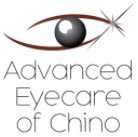Scheduling regular eye exams is crucial for maintaining good eye health, but knowing exactly how often to book these appointments can be a matter of personal health, age, lifestyle, and risk factors. Advanced Eyecare of Chino Optometry emphasizes the importance of understanding when and why these exams are necessary to ensure your vision and eye health are at their best.

The Importance of Regular Eye Exams
Eye exams are essential not just for updating prescriptions for glasses or contact lenses, but also as a preventive measure against eye diseases. Many eye conditions show no symptoms in their early stages, making regular check-ups vital for early detection and treatment. These exams can also identify other health issues, thanks to the comprehensive view they provide of your blood vessels and nerve tissue.
Frequency of Eye Exams by Age Group
Children and Teens
The development of children’s vision and eye health is rapid, necessitating routine examinations. The American Optometric Association recommends the first eye exam between 6 and 12 months, with follow-ups between ages three to five, and annual exams thereafter.
Adults (19-64 years)
Adults should aim for an eye exam at least every two years, though this can vary depending on personal health conditions or vision changes. Regular eye health assessments are essential, even if no immediate vision concerns are present.
Seniors (65 years and older)
For seniors, annual eye exams are recommended due to the increased risk of conditions like presbyopia, cataracts, and other age-related vision problems.
Special Considerations
Certain conditions require more frequent visits to the optometrist:
-
Prescription glasses or contact lens wearers typically need yearly exams to ensure their prescriptions are up-to-date.
-
Individuals with a family history of eye diseases, or those with a medical history that includes eye surgery or trauma, should consult their optometrist for a personalized exam schedule.
-
Individuals who are experiencing symptoms like eye strain, headaches, floaters, or difficulty with night vision should not wait for their next scheduled exam to seek advice.
Insurance and Eye Exams
It’s worth checking with your insurance provider as policies differ; many cover an annual eye exam. Understanding your coverage can help in planning and ensuring that you get the necessary eye care without delay.
The Role of Digital Screen Use
The increasing use of digital screens has led to a rise in digital eye strain symptoms. Regular breaks from screens and annual eye exams are recommended for those who spend significant time in front of computers and smartphones.
Schedule Your Next Eye Exam with Advanced Eyecare of Chino Optometry
Keeping an eye on your vision health is essential at every stage of life. Advanced Eyecare of Chino Optometry is dedicated to providing comprehensive eye exams tailored to your individual needs. Whether you’re experiencing vision changes, have a family history of eye conditions, or are due for your routine check-up, our team is here to support your eye health.
Take the Next Step for Your Eye Health
Don’t overlook the importance of regular eye exams in maintaining your vision and eye health. Advanced Eyecare of Chino Optometry invites residents of Chino, CA and surrounding areas to schedule their next eye exam with us. Feel free to contact us at (909) 627-7518 or fill out our online form to book your appointment. Stay proactive about your eye health and let us help you keep your vision clear and comfortable.


